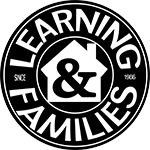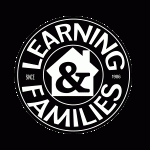The vision of LAF is to support families in the building of Christ-like character: “to grow in wisdom and stature and in favor with God and men.” (Luke 2:52)
Violations to the Code of Conduct will be handled according to the LAF Disciplinary Procedures.
General Expectations
All participants, students, and parents are required to respect and adhere to all guidelines at all times when attending LAF events or classes or representing LAF (e.g. wearing an LAF t-shirt), including the following:
- Adhere to the LAF Statement of Faith
- Maintain a positive attitude and an open mind for learning
- Show respect and obey those in authority
- Show respect and honor peers (zero tolerance for rude, mean, or bullying behavior, as defined in the Support Community Handbook)
- Respect private and/or public property (you damage or break it, you pay for it)
- Respect individual’s property: devices, projects, bags, etc. (you damage or break it you pay for it)
- Abstain from verbal or written profanity, including but not limited to taking of the Lord’s name in vain
- Abstain from sowing discord in the community
- Arrive at events, trips, workshops, or classes on time out of respect for other families, facilitators, and businesses/organizations serving LAF
- Abstain from any public display of affection between those in dating/courting relationships (for exceptions, see the High School Dance PDA guidelines), as well as any sexual activity or any form of sexual harassment
- Clean up after yourself (parents help your younger children) at all LAF functions, functions, classes, and LAF facilities
- Abstain from using or having possession of any alcohol, tobacco, vaping, or electronic cigarettes products, or illegal substances
- Understand that weapons are strictly prohibited (firearms, knives, tasers, pepper spray, etc.) without a State of Florida Concealed Weapon or Firearm License
- Limit cell phone usage, and always uphold the values outlined in our Statement of Faith when using mobile devices
Dress Code
As is the case with many schools, workplaces, and even certain events, Learning and Families reserves the right to establish a standard that we believe reflects the intentions of our program. Modesty and integrity are always the standards with respect to the fit and type of clothing appropriate for LAF Co-op, events, activities, and functions. The LAF Dress Code applies to all individuals – students and adults alike. The LAF Board of Directors reserves the right to determine what does and does not meet these standards.
- All clothing must be worn with a modest fit
- Shorts and skirts must be at fingertip length or longer unless worn with leggings underneath
- Rips in pants must not go any higher than fingertip length
- No undergarments may be showing (underwear, bras)
- No bare midriffs, backless shirts, crop-tops without an undershirt, or visible cleavage
- No halter tops, strapless tops, or spaghetti straps
- Pants/shorts must be worn at a reasonable waistline
- No objectionable logos, phrases, or images
- Must wear a t-shirt under sleeveless sports jerseys
*Please note that the LAF Prom has its own Dress Code.
Electronic Device Policy
Students may have “silenced” cell phones and mobile communication devices on their person while at Learning and Families functions. At the LAF Co-op, students are only permitted to use cell phones and mobile communication devices before and after classes and in common areas outside the classroom. Each Co-op Facilitator has the right to permit the use of cell phones and mobile communication devices for instructional purposes. The use of these devices during instructional time without the permission of the Facilitator or in a disruptive manner in the Co-op setting is prohibited.
During any and all LAF functions, students shall not use a cell phone or mobile communication device to violate the LAF Statement of Faith or Code of Conduct. Examples of unacceptable usage include but are not limited to:
- In restrooms
- For cheating
- For cyberbullying, sexting, and taking/viewing inappropriate pictures or videos
- For mass texting or airdropping.
LAF facilitators, leaders, and parent volunteers have the right to ask a student not to view a particular image or website, or game that they deem inappropriate.
Cell phones and mobile communication devices that ring, vibrate excessively, or in any other way disrupt the educational process of a class or activity are grounds for confiscation of the device by LAF leaders or Co-op facilitators.
In the event that a student’s cell phone or other electronic device is confiscated, parents will be contacted and may claim the student’s device from an LAF leader. Contents of cell phones may be reviewed and searched together with an LAF leader and a parent/guardian if there exists a reasonable suspicion that it may have been used in an activity prohibited by the Code of Conduct. The student assumes all risks in bringing such devices onto an LAF affiliated property or to any related functions.
Consequences for inappropriate use of electronic devices as described above may
- Result in a written disciplinary Violation Report
- Require the device be turned over to the appropriate LAF leader
- Result in contacting of appropriate authorities in the case of potentially illegal activity on an electronic device
LAF assumes no responsibility for theft, loss, or damage of an electronic device brought to Co-op or any LAF-related function.
Rude, Mean, and Bullying
Although none of these behaviors are acceptable within Learning and Families, it is important to have a shared language and understand the difference between these behaviors so that when we address it with LAF children, we are clear about how the behavior was wrong and what we can do to resolve it. The following definitions are taken from an article that appeared in Psychology Today on November 25, 2012 and will be used as such in the discipline process.
Rude = Inadvertently saying or doing something that hurts someone else
Rudeness might look like burping in someone’s face, jumping ahead in line, bragging, eating a bite of someone’s snack without permission, etc. Incidents of rudeness are usually spontaneous, unplanned, inconsiderate, based on thoughtlessness or poor manners, but the motive behind rudeness is not to actually hurt someone.
Mean = Purposefully saying or doing something to hurt someone
The main distinction between “rude” and “mean” behaviors lies in the motive. Rudeness is unintentional, but mean behavior aims to hurt or depreciate someone. Kids are mean when they criticize clothing, appearance, intelligence or anything they can find to denigrate. Meanness can also be words spoken in anger — impulsive cruelty is often regretted in short order. Rudeness that is repeated after it has been addressed can also cross the line into meanness.
Bullying = Intentionally aggressive behavior, repeated over time, that involves an imbalance of power
Experts agree that bullying entails three key elements:
- An intent to harm
- A power imbalance
- Repeated acts or threats of aggressive behavior.
Kids who bully say or do something intentionally hurtful and continue doing it with no sense of regret or remorse, even when the victim expresses hurt and tells the aggressor to stop. Bullying may be physical, verbal, relational, or carried out via technology. Physical aggression includes hitting, punching, kicking, spitting, tripping, hair-pulling, etc. Verbal aggression includes abusive and hurtful words to intimidate and/or denigrate. Relational aggression includes social exclusion, shunning, hazing, and rumor spreading.
Academic Expectations at Co-op
It is imperative that every family FULLY understands that Learning and Families Co-op is NOT a school! We do not assume ANY responsibility for fulfilling students’ legal educational requirements. The homeschooling parents assume all responsibility for each of their student’s education. We do not keep academic records that are required by the state of Florida. The parents assume full responsibility for tracking educational activities, hours of instruction, evaluations, and academic portfolios. We also do not offer report cards or high school transcripts.
LAF is a supplemental and enrichment opportunity for families who are actively educating their children full-time at home. Families understand that if we have to close Co-op for any reason (e.g. illness outbreak, hurricanes), families have the responsibility of continuing their student’s education program at home.
Junior Co-op is designed to be an enrichment of each family’s unique homeschool plan. No academic grades will be suggested by Junior Co-op facilitators. Each family reserves the right to decide whether or not they will complete assignments at home.
The following information pertains to Middle and High School Co-op only. All assignments and projects must be completed and submitted to the facilitator by the due date unless a special need exists and unique arrangements have been made with the facilitator. All work handed in must be the student’s own work.
Communicate any concerns and/or questions about assignments with your facilitator. Parents are expected to actively monitor their student’s work, as the parent is responsible for their child’s education. In addition, it is important for parents to recognize that the role of the facilitator is to facilitate a weekly classroom experience. The facilitator is not a traditional school teacher. Therefore, it is not appropriate to contact the facilitator to ask for copies of notes or information on material covered in class, including homework assignments. For that kind of information, refer to the syllabus or contact another student in the class.
Middle School Level: It is the facilitator’s discretion to give grades at the middle school level. The parent is primarily responsible for grading their student’s work. Middle School students have a moral obligation to complete all assignments and projects assigned by their facilitator unless a special need exists and unique arrangements have been made with the facilitator. Any academic questions should be directed to the facilitator.
High School Level: All high school students will receive suggested grades in each class based on criteria developed by the class facilitator. If a student repeatedly misses class, fails to complete assignments, or cannot maintain the required level of work, LAF reserves the right to dismiss the student from any or all LAF Co-op classes with no refund.
Academic Honesty
Good academic work must be based on honesty. The attempt of any student to present as his or her own work that which he or she has not produced is a serious offense at Learning and Families. Promoting honesty in academic work requires understanding the definition of academic dishonesty, its different types, and its causes and consequences.
There are four types of academic dishonesty:
- Cheating
- Plagiarism
- Falsification or fabrication
- Sabotage
Cheating copying the work of another during a test or turning in an assignment written, in
whole or in part, by someone else
Plagiarism copying material or paraphrasing ideas from sources without acknowledging
them
Falsification/ Fabrication improperly assigning authorship, using false or fabricated quotes or data
Sabotage destroying or disrupting another person’s work or failing to contribute to a team project
CHEATING
Cheating involves the unauthorized use of information, materials, devices, sources, or practices in completing academic tests and assignments. For example, copying another student’s work during a test is cheating. A student who allows another student to copy from his or her work is considered to be facilitating or contributing to cheating and will be held equally responsible. Cheating also includes but is not limited to, using sources beyond those authorized by the instructor in writing papers, preparing reports, solving problems, or carrying out other assignments, such as using a mobile device to look up answers during an exam and using Artificial Intelligence software to write a paper or to conduct research, unless authorized by a parent or the facilitator.
PLAGIARISM
Dictionary.com defines plagiarism as “an act or instance of using or closely imitating the language and thoughts of another author without authorization and the representation of that author’s work as one’s own, as by not crediting the original author.”
There are two kinds of plagiarism: intentional and unintentional. Intentional plagiarism occurs when a student chooses to use words from sources that are not his own and does not cite the source. This can either be a direct quote or a paraphrase that is too close to the original work. Unintentional plagiarism occurs when a student’s language is too closely influenced by someone else’s work.
LAF uses Grammarly to check for plagiarism. Neither form of plagiarism will be tolerated at LAF Co-op.
FALSIFICATION/FABRICATION
Falsification or fabrication involves the unauthorized creation or alteration of information in an academic assignment. For example, artificially creating data when it should be collected from an actual experiment or making up a source of information that does not exist is considered fabrication or falsification.
SABOTAGE
Sabotage involves disrupting or destroying another person’s work so that the other person cannot complete an academic activity or assignment successfully. For example, destroying another person’s artwork, experiment, or design is considered sabotage. Failure to contribute as required to a team project can also be considered academic sabotage.
Disciplinary Guidelines
In any correction situation, the goal will always be effective communication and a change of heart and behavior. In the event of a violation of this Code of Conduct, an LAF representative will follow these disciplinary procedures.



